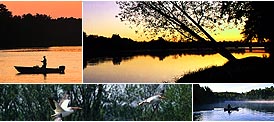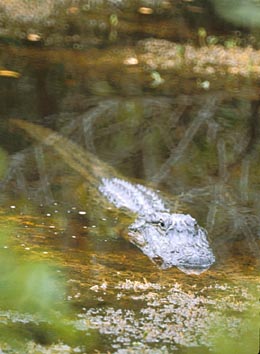
Note: Watch this area for additional navigation information in each section!


Scuba Diving Classes
by Carl Walker
These are three of the world's best and largest diving training organizations that offer scuba diving courses and classes. PADI or Professional Association of Diving Instructors (www.padi.com): In the recreational diving membership organizations, PADI is the world's largest, with offices in Australia, Canada, Switzerland, Japan, Sweden, the United Kingdom, New Zealand and the United States. PADI started in 1967 and the main corporate headquarters is located in California, and is known as PADI Worldwide. PADI offers Open Water Diver course, the most widely accepted and esteemed diving certification in the world. One of the popular entry level trainings PADI offers is the Discover Scuba Diving program, accessible at any PADI Dive Center or Resort. Basic concepts and scuba skills are taught here under the supervision of PADI Professionals in pool or pool-like conditions. Though minimum age requirement is 10 years old, younger kids can also attend the "junior" courses. The entry level training emphasizes on practical safety issues instead of theoretical concepts such as the physics and chemistry of diving. The Discover Scuba Diving program is followed by the PADI Specialty Diver and PADI Rescue Diver programs for people who want to continue. These include advanced training and additional skills specific to personal interests. After each course is completed, a certificate is issued which is widely accepted throughout the world as proof of proficiency. PADI issues almost 946,000 certifications each year. NAUI or National Association of Underwater Instructors (www.naui.com): NAUI Worldwide was established in 1959 as a non-profit diving membership association, and organized solely to support and promote Dive Safety through education, which has now become the second largest diver training organization. Their training programs include Skin Diver through Instructor Course Director, with several number of specialty courses including Search and Recovery Diver, Scuba Rescue Diver, Nitrox and technical diving , to name a few. NAUI also includes Technical courses, Leadership courses and Recreational courses. Recreational courses include Skindiver, SCUBA Diver, Experienced SCUBA Diver and Advanced SCUBA Diver. NAUI's certification class is for people above 8 year-olds and you don't have to be an accomplished swimmer. For younger kids, there is also a "Snorkeling for Kids of All Ages" non-certification class. SSI or Scuba Schools International (www.divessi.com): SSI is also a worldwide diving training organization that specializes in business support for dive businesses that was established in 1970. It is, in fact, the largest school-based training agency in the world with various regional centers, and its certification is widely accepted throughout the world. They have a SSI Facility Search feature on their website if you need to get region-specific information. The beginner programs offered by SSI include Scuba Ranger, Try Scuba, Passport Diver, Open Water Diver, Snorkeling, and Scuba Skills Update. In order to reach SSI's highest recognition level in diving - the Platinum Pro5000 Diver award, you have to go through a number of intermediary such as Stress and Rescue Diver, Specialty courses, Continuing Education Ratings, and advanced programs such as Dive Leader Education System, including Dive Control Specialist and Open Water Instructor. About The Author:Scuba Diving HQ. http://scubadiving-hq.com/ Articles, tips and information about scuba diving.












